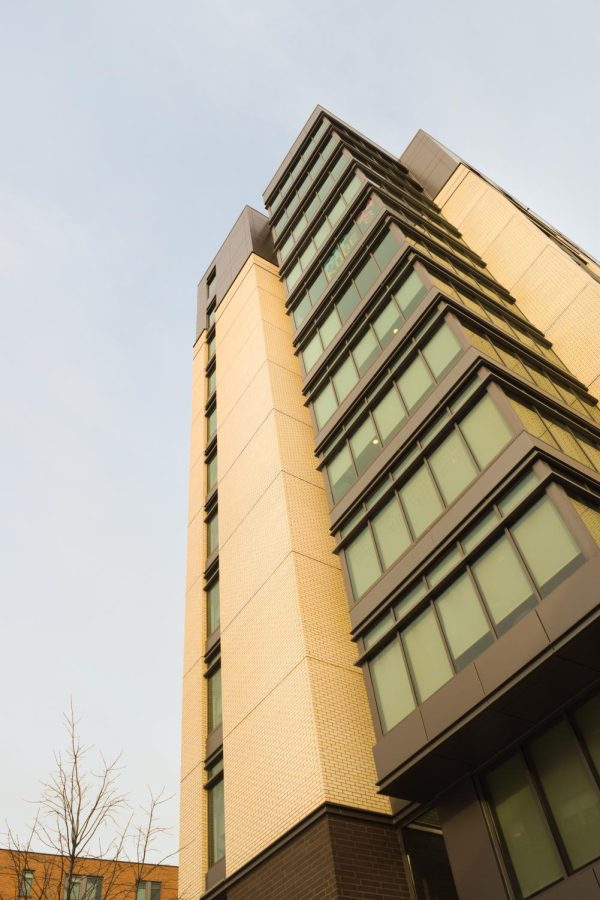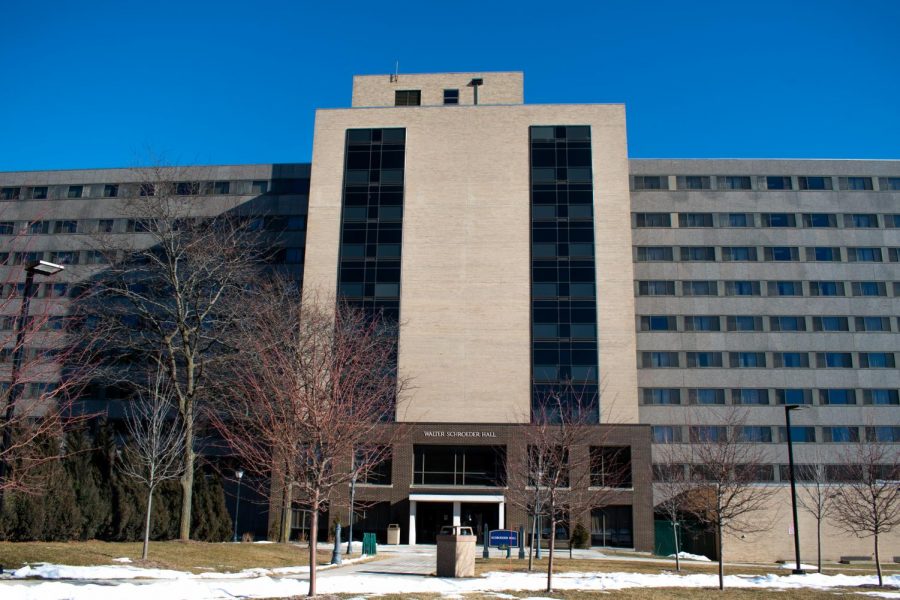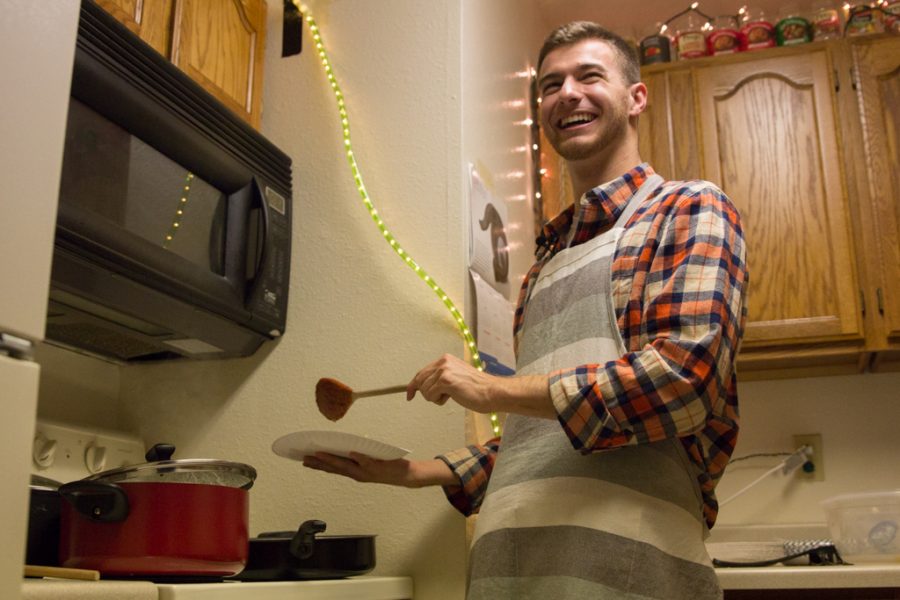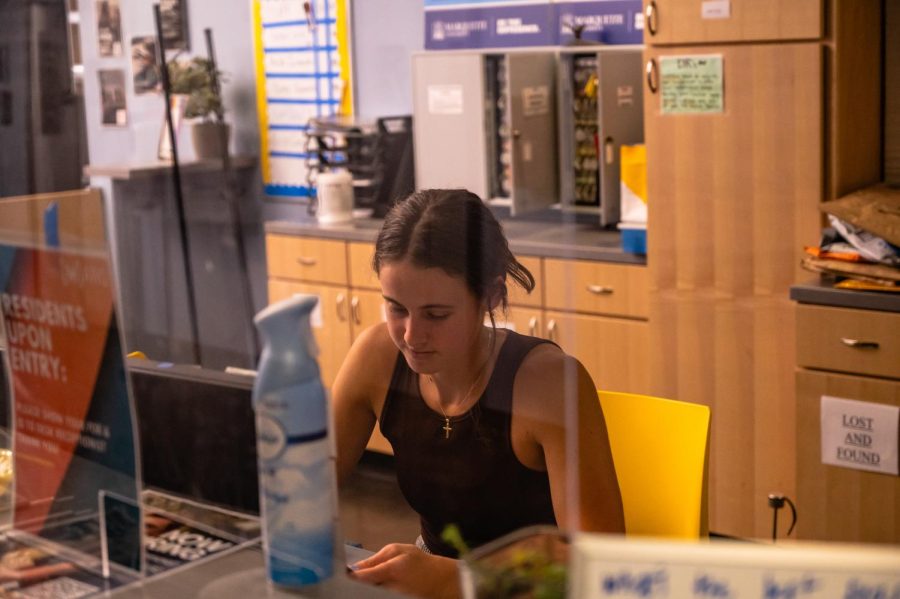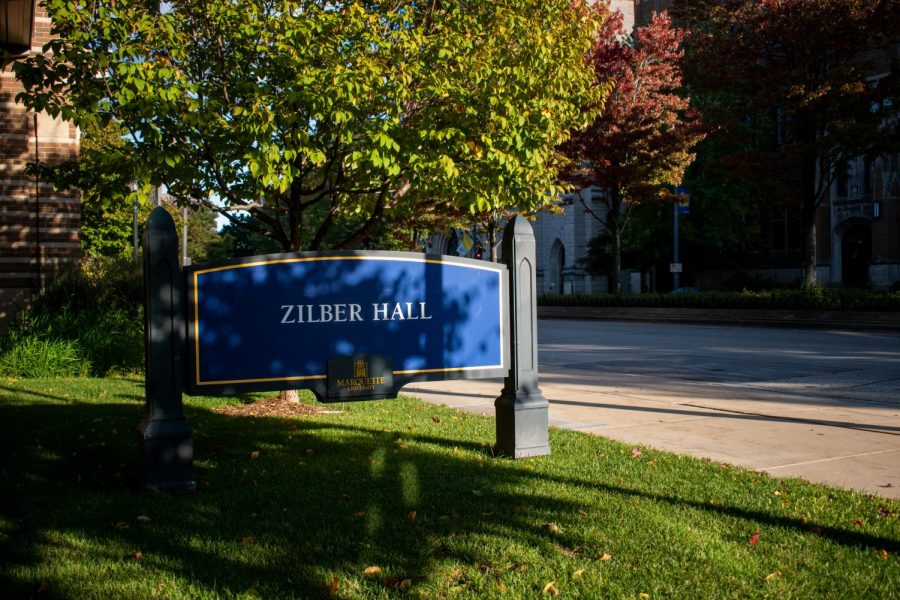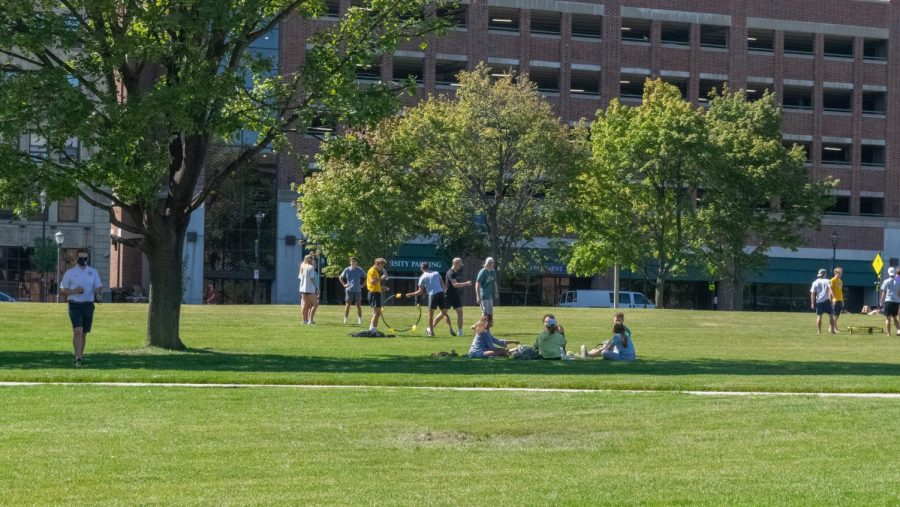Hope Johnson, a sophomore in the College of Arts & Sciences, opened her computer and scanned her inbox on Nov. 10,2020. , searching for the email containing the final decision to her housing exemption form. The decision made by the Housing Appeals Board would determine where she would be staying in the spring semester: an apartment or at home away from campus.
Whether from concerns about safety, mental health, quick deadlines or a lack of community, housing during the 2020-2021 school year has been different and difficult for many students.
“Based upon the information available, the Housing Appeal Board has denied your Request for Termination, Release, or Exemption from the University Housing Agreement,” the email from Rachel Tepps, the Assistant Director of University Apartments and Off Campus Student Services, stated in its finality.
Johnson, a previous resident of Schroeder Hall, had filled out a housing exemption form after the Schroeder lockdown in Sept. where residents were quarantined for 14 days after 3% of the building testing positive for COVID-19. Johnson had hoped to take advantage of the opportunity to live off campus as a sophomore during the spring semester. After the lockdown, Johnson recalled experiencing feelings of isolation and discomfort from how the university and other students around her were responding to COVID-19. She stated these concerns in her exemption form.
“I said that the isolation from the lockdown was affecting the mental health; They declined me, that’s why I’m home,” Johnson said.
Johnson recalls being shocked and frustrated that she wasn’t allowed to get an apartment. As a final option, she decided to finish the school year virtually from home.
“I can only be accountable for myself. There are so many people living in dorms that I don’t have control over …” Johnson said.
Tepps stated in her email to the Marquette Wire that she did not have access to the number of sophomores who were denied exemption from living in the residence halls, but did state the requirements changed between the fall and spring semesters.
“Sophomores could be released for any reason, as long as they requested an exemption prior to the start of the fall semester … in spring, any first or second year students who were enrolled in all online courses and living at their permanent address could request to be released from their housing requirement,” Tepps said in an email.
This means that the requirements of exemption changed for sophomores after the start of the fall semester.
Before school started in August, if sophomores filled out the exemption form and stated they wanted to be released of their residence hall requirement, they would be. Sophomores who completed this form in the short time period could choose to be in an apartment the start of the fall semester, the start of the spring semester or they could remain at their permanent address completely online.
Claire Flynn, a sophomore in the College of Arts & Sciences, was able to get an apartment her second semester because she filled out the housing exemption before school started in the fall. Johnson, however, was not allowed to due to the changes in requirements and the fact she filled out the form later in the year. Due to this, Johnson’s only options were staying in her residence hall or returning home for the spring.
Flynn also lived in Schroeder Hall during the fall semester but had made different living arrangements for the spring before the fall semester started. Flynn is currently living in an off-campus apartment near campus.
Flynn and her roommates anticipated problems that could come with living in a dorm, especially one that had communal style bathrooms.
“We decided we’d do a semester in the dorms and a semester in the apartment when we got that email from Marquette (in August). We got to the dorms and people weren’t being safe and we were like ‘oh we have to share a bathroom, with them’ so that is why we made that decision to not keep living there,” Flynn said.
Similar to Johnson, Flynn recalled the first semester being stressful with the lockdown in September and overall feelings surrounding her safety in communal housing during the pandemic. Once the lockdown occurred, Flynn decided to finish the fall semester at home and then return in the spring to her apartment.
When sophomores received the email Aug. 5, 2020, granting them the option to be released from their residential living requirement, they had just over two weeks to decide whether they wanted to live in a dorm or an apartment, find an apartment and sign their leases.
This quick turnaround meant that many sophomores, like Johnson and Flynn, did not have the time to find an apartment before the start of the fall semester.
“I wish that the university would have told us earlier about sophomores being exempt from the housing requirement,” Johnson said. “I just thought (having an apartment) would give me more control over everything.”
Tania Avallone, a sophomore in the College of Communication, has lived in Cobeen Hall during the entire school year.
“I feel like Marquette didn’t give us enough time to prepare and actually find a place,” Avallone said, “I would have definitely gotten an apartment, it would have saved me so much money.”
Based on 2020-2021 tuition and housing fees, room and board in the residence halls at Marquette can cost anywhere between $11,000 to almost $15,000 dollars a school year. In contrast, the rates for Marquette apartments during the 2020-2021 school year ranged from $500 to a little over $2,000 dollars per month. This cost can be split between roommates.
While Avallone was not denied the opportunity to live in an apartment, she felt she was unable to research her options properly with the timeframe given and ultimately decided staying in the residence hall was easiest.
Traditionally, students are required to lived in residence halls their first two years at Marquette. However, this year, in many ways, has proven to be different.
“We (the Office of Residential Life) were looking for a way to de-densify the residence halls as the pandemic was continuing to evolve,” Mary Janz, executive director of Housing and Residence Life, said in an email. The final decision was to allow a one-time release for current sophomores to move off-campus and first-year students with all online courses were allowed to live at their permanent address.
Janz said in an email during this past year, 3,475 students, not including Residential Assistants, lived on campus. She also said 2,380 lived in residence halls and 1,095 lived in university apartments. According to the Office of Residence Life’s website, about 3,406 students normally live in residence halls. According to Janz, the office did not track how many underclassmen signed leases this year.
Even sophomores who were able to successfully opt out of their residence hall living requirements experienced stress from adjustments that come with living in an apartment.
“I’m definitely very happy with the apartment right now, but if it wasn’t for COVID I would have wanted to stay in the dorm for the whole two years … being in a floor with a bunch of other students was really nice,” Flynn said.
The experience in dorms and apartments can be different in a variety of ways. Students not in apartments pay for Marquette’s Anytime Dining meal plan, whereas students in apartments either don’t have a meal plan or the Loyalty 50 meal plan which is limited. In dorms, Residential Assistants are responsible for implementing floor meetings, which helps build community in the dorms. Students in apartments have a much more independent experience and do not have this built in floor community. In residence halls, there are also more enforced rules with drinking, quiet hours, pets, decoration, visitation, etc.
Max Mantych, a sophomore in the College of Health Sciences, was also very happy to be able to live in an apartment during the fall and spring semesters, but misses the community often found in residence hall living.
“I definitely miss the idea of living in the dorm. Especially because Library Hill (Apartments) is a quieter apartment and I’m more extroverted person so I miss being able to walk out in the hallway and talk to my floor-mates,” Mantych said. “That’s also a version of the dorms that doesn’t exist right now.”
Zach Molcyzk, a first-year student in the College of Engineering, said he is struggling with this new version of form life that has come with the pandemic.
“I’m going to be very honest, it kinda sucks. The dorms are a little different than what I expected. When I first got to Cobeen I was really excited… (but) with COVID and everything there aren’t many events and you can’t really tell if people are smiling or talking to you,” Molczyk said.
In the future not as actively disrupted by COVID-19, all first-year and sophomore students will be required to live on campus if they choose to attend Marquette University, Tepps said in an email to Marquette Wire.
Molczyk, and other underclassmen, hope for and miss the social community normally associated with dorm life that has been absent this past year in their future housing experience.
This story was written by Maria Crenshaw. She can be reached at maria.crenshaw@marquette.edu.


